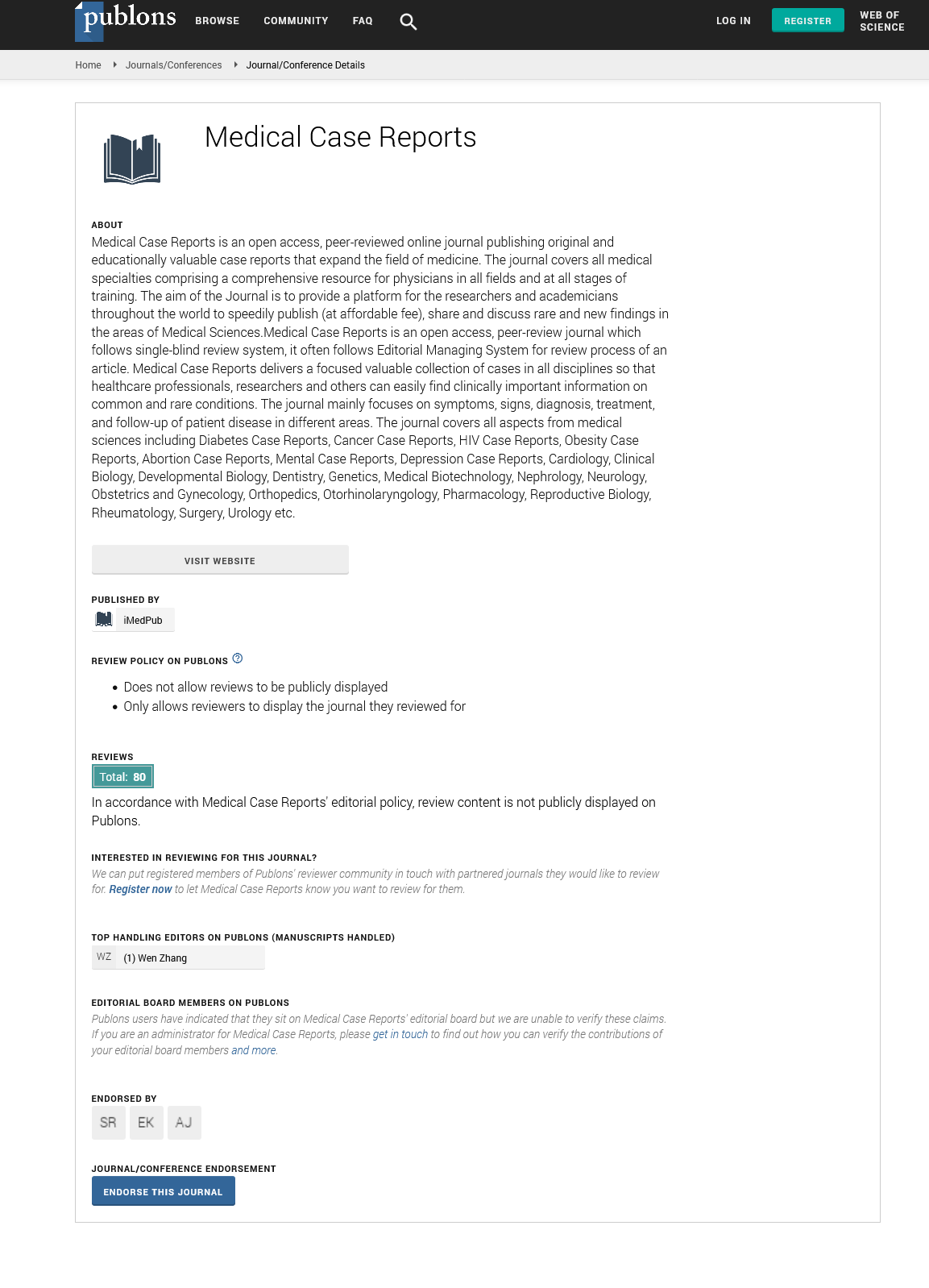ISSN : 2471-8041
Medical Case Reports
First reported case of endophthalmitis following sustained release fluocinolone acetonide intravitreal implant
8th Edition of International Conference on Clinical and Medical Case Reports
May 28-29, 2018 London, UK
Mahdi Rostamizadeh
Valley Retina Institute, Texas, USA
Posters & Accepted Abstracts: Med Case Rep
DOI: 10.21767/2471-8041-C1-003
Abstract
A 30 year old male with a history of diabetes, hypertension and hyperlipidemia initially presented to our clinic to receive fluocinolone acetonide implant for his diabetic retinopathy. On the day of treatment with fluocinolone acetonide implant the patient’s uncorrected visual acuity was 20/60. After the injection, the patient was prescribed ciprofloxacin three times a day for five days and advised to return to clinic in two days for an IOP check as is standardized at our practice for intravitreal steroid implants. On post op day 2, patient had complaints of new pain (5/10) and floaters. Uncorrected visual acuity of 20/150 and IOP of 18 in the right eye. Dilated fundus exam revealed +1 haze in the vitreous, otherwise the exam was unchanged. Monitoring with close observation was recommended and patient was advised to return to clinic immediately if there is worsening of his symptoms. Patient returned to clinic three days later complaining seeing floaters, blurry clouds and black lines. Uncorrected visual acuity was CF@3 ft and intraocular pressure of 21. New exam findings showed +1 cell in the anterior chamber and an increase in haze to +2 in the vitreous. Clinical diagnosis of endophthalmitis was made and patient underwent an intravitreal tap and inject of 1 mg in 0.1 ml of vancomycin and 2.25 mg in 0.1 ml of ceftazidime. Over the course of seven days the patient’s uncorrected visual acuity improved to 20/80 and three months later patient’s uncorrected visual acuity improved to 20/50 which was better than baseline. Cultures did not grow any organism. Fluocinolone acetonide intravitreal implant was approved for use in the US by the FDA in September 2014. In the FAME trial that evaluated its efficacy there was a 0.26% (2/768) incidence of endophthalmitis. This is the first case report of endophthalmitis following the implantation of a fluocinolone acetonide implant.
Biography
E-mail: mahdi.rostamimd0@gmail.com
Google Scholar citation report
Citations : 241
Medical Case Reports received 241 citations as per Google Scholar report
Medical Case Reports peer review process verified at publons
Abstracted/Indexed in
- Google Scholar
- China National Knowledge Infrastructure (CNKI)
- Cosmos IF
- Directory of Research Journal Indexing (DRJI)
- WorldCat
- Publons
- Secret Search Engine Labs
- Euro Pub
Open Access Journals
- Aquaculture & Veterinary Science
- Chemistry & Chemical Sciences
- Clinical Sciences
- Engineering
- General Science
- Genetics & Molecular Biology
- Health Care & Nursing
- Immunology & Microbiology
- Materials Science
- Mathematics & Physics
- Medical Sciences
- Neurology & Psychiatry
- Oncology & Cancer Science
- Pharmaceutical Sciences
